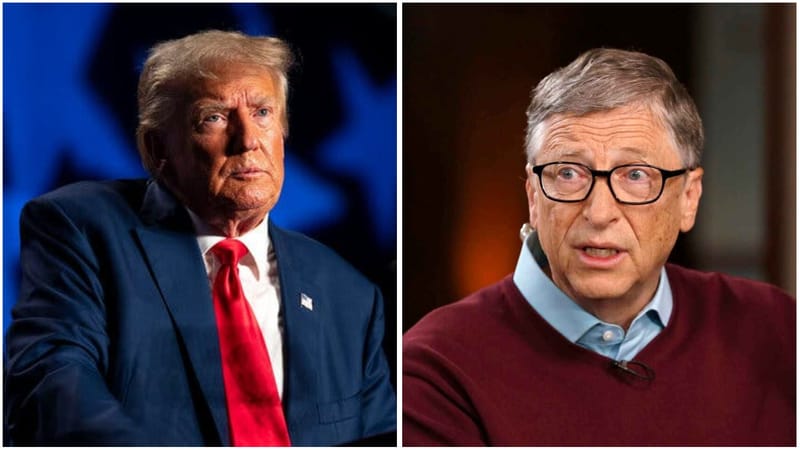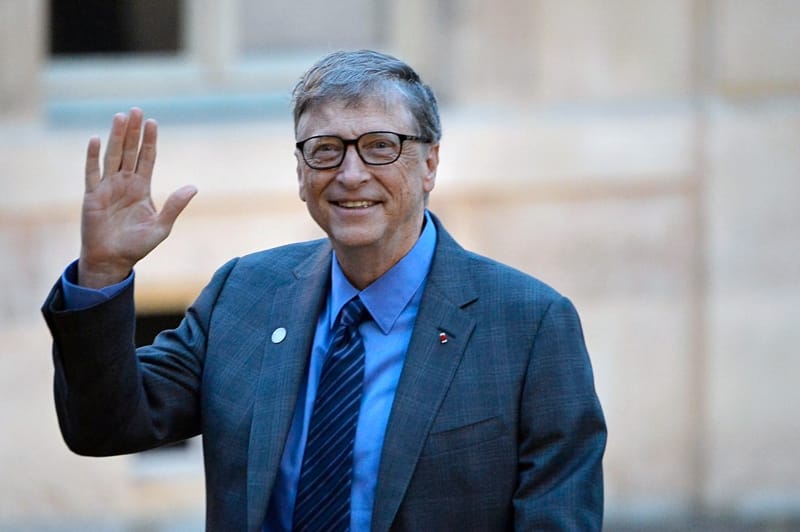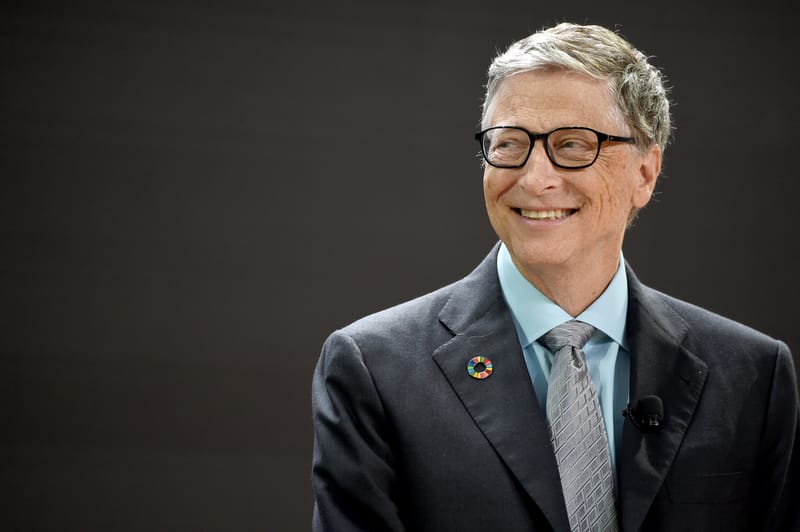Bill Gates Predicts AI Will Replace Teachers, Ushering in a New Era of Education
Microsoft Co-Founder Envisions “Free Intelligence” Transforming Classrooms Within a Decade New York, NY - Billionaire philanthropist and Microsoft co-founder Bill Gates has sparked a heated debate in the education world, predicting that artificial intelligence (AI) will replace human teachers within the next decade. Speaking on NBC’s The Tonight Show
Microsoft Co-Founder Envisions “Free Intelligence” Transforming Classrooms Within a Decade
New York, NY - Billionaire philanthropist and Microsoft co-founder Bill Gates has sparked a heated debate in the education world, predicting that artificial intelligence (AI) will replace human teachers within the next decade. Speaking on NBC’s The Tonight Show with Jimmy Fallon in February, Gates painted a future where AI delivers what he calls “free intelligence,” rendering traditional teaching roles obsolete as it provides high-quality, accessible tutoring to all.
Gates, appearing on the late-night program to discuss technology’s evolving role, highlighted the scarcity of exceptional educators today. “At the moment, expertise remains rare,” he told Fallon, pointing to the reliance on “a great teacher” for quality education. But he foresees AI changing that dynamic entirely. “With AI, over the next decade, that will become free, commonplace—great tutoring,” Gates said, suggesting that advanced systems like ChatGPT could soon outpace human instructors in delivering personalized learning.
Bill Gates says AI will replace doctors, teachers within 10 years — and claims humans won’t be needed ‘for most things’ https://t.co/H9hLIjHVf6 pic.twitter.com/74fO07G9vP
— New York Post (@nypost) March 27, 2025
The tech mogul expanded on this vision in a separate interview last month with Harvard professor Arthur Brooks, describing an era of “free intelligence” where AI-powered tools become ubiquitous, touching every aspect of life—including education. “It’s very profound and even a little bit scary—because it’s happening very quickly, and there is no upper bound,” Gates told Brooks. He cited OpenAI’s rapid success in creating an AI model that aced an AP Biology exam in mere months—a task he’d expected to take years—as evidence of the technology’s accelerating potential.
Gates’ comments build on earlier statements, such as his 2023 remarks at the ASU+GSV Summit in San Diego, where he predicted AI chatbots would teach kids to read and write within 18 months. Now, he’s doubled down, arguing that within ten years, AI could fully supplant teachers, automating instruction in subjects from math to literature. “The AIs will get to that ability, to be as good a tutor as any human ever could,” he reiterated on The Tonight Show, echoing a sentiment from his blog that AI’s development rivals the invention of the personal computer.
The prediction has ignited a firestorm of reactions. On X, supporters hailed the shift, with posts like, “Bill Gates says AI will replace teachers—finally, education for everyone!” Others, however, expressed skepticism and concern. Critics, including educators, argue that teaching involves empathy, creativity, and human connection—qualities AI can’t replicate. “Bill Gates knows nothing about teaching,” one X user posted, referencing his past education reform efforts through the Bill & Melinda Gates Foundation, which some deem failures despite billions invested.
Bill Gates: AI will replace doctors and teachers in 10 years—humans won’t be needed ‘for most things’ https://t.co/NBap2fTKqc
— Insider Paper (@TheInsiderPaper) March 28, 2025
Experts are divided. Dr. Paul Offit, a pediatrician and vaccine expert, warned PBS NewsHour that replacing teachers with AI risks losing the social fabric of learning, potentially impacting child development—a lesson underscored by pandemic-era remote schooling. Yet proponents like Sal Khan of Khan Academy, whose AI tutor Khanmigo already aids students, see it as a boon for overworked teachers and underserved communities. Gates himself acknowledged on his “Unconfuse Me” podcast that AI won’t fully replace teachers’ human touch but could “assist” by handling rote tasks, freeing educators for deeper engagement.
Still, the stakes are high. The U.S. employs over 3.2 million public school teachers, and a shift to AI could disrupt livelihoods while raising questions about equity and access. Gates insists the change will democratize education, noting to Fallon, “Having access to a tutor is too expensive for most students—this should be a leveler.” He also reassured viewers that some human roles, like sports or entertainment, will persist, quipping, “People probably don’t want to see machines playing baseball.”
As AI advances—evidenced by tools like Grok, recently topping Android app charts—the debate intensifies. Gates, undeterred, urged young innovators to seize this “frontier,” telling CNBC Make It in September 2024 that an AI-centric startup could raise billions today. Whether his vision heralds a revolution or a reckoning for education remains to be seen, but one thing is clear: the classroom of tomorrow may look nothing like today’s.Explain AI tutoring benefitsImpact on other professions




